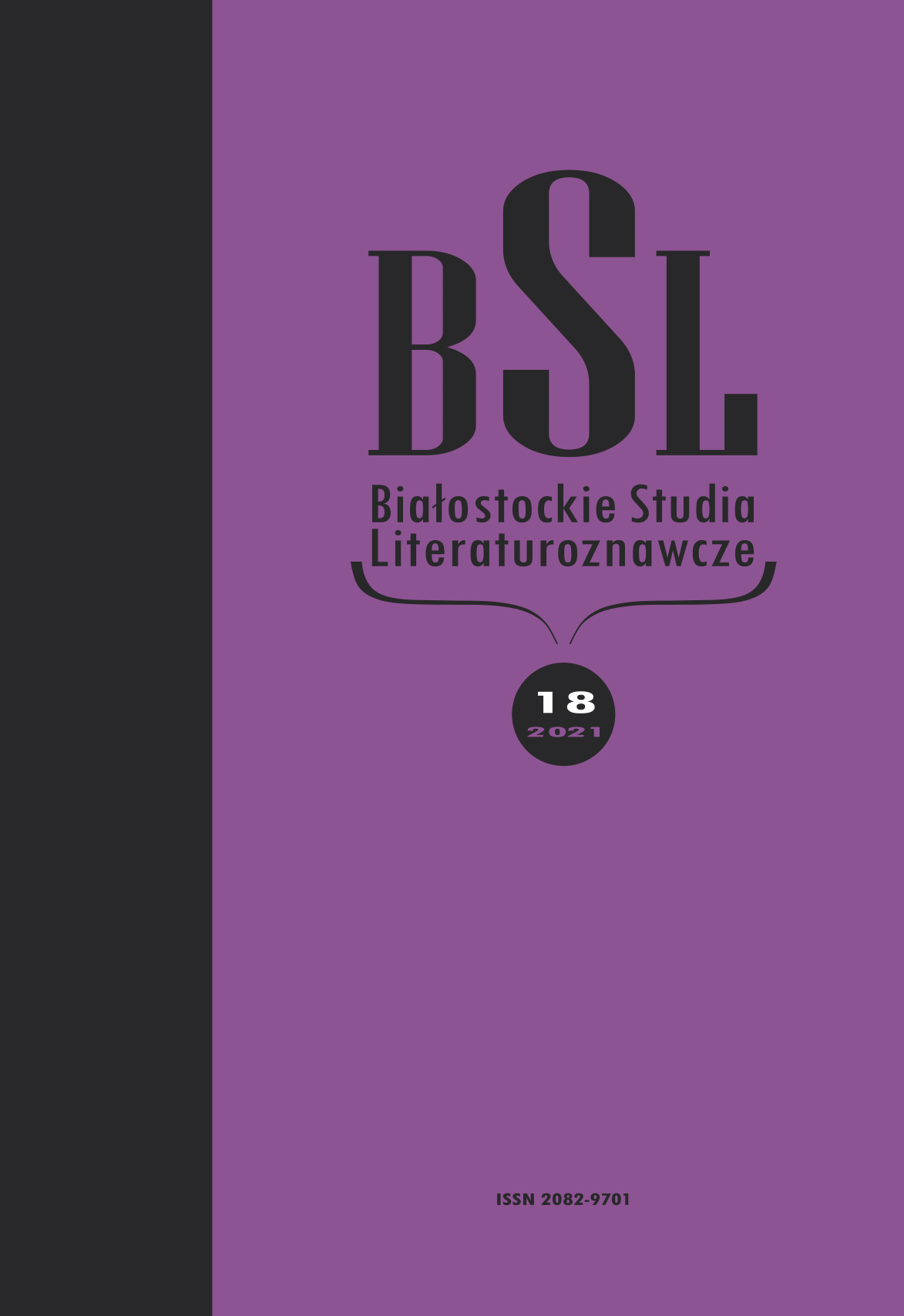Splot głosów. Mowa pozornie zależna w Requiem dla gospodyni Wiesława Myśliwskiego
Intertwined Voices: Free Indirect Discourse in Wiesław Myśliwski’s Requiem dla gospodyni
Author(s): Anna PiniewskaSubject(s): Language and Literature Studies, Theory of Literature
Published by: Wydawnictwo Uniwersytetu w Białymstoku
Keywords: free indirect discourse; drama; character; point of view in drama
Summary/Abstract: The article analyzes the drama Requiem dla gospodyni by Wiesław Myśliwski in the context of free indirect discourse as understood in literary criticism. The author of the article discusses the instances of this form of expression used in the utterances of Boleś, a shepherd and country madman of an unknown ontological status. She notices the problems with distinguishing between free indirect speech and the direct quoting of the late titular landlady [gospodyni] with whom Boleś established a strong bond. The author demonstrates that the shepherd plays a significant role both as a part of the storyline and a formal element because his creative capacity (building images) as well as linguistic (creating a binarrative in free direct speech) reveal his meta-dramatic character and privilege the dramatic subject.
Journal: Białostockie Studia Literaturoznawcze
- Issue Year: 2021
- Issue No: 18
- Page Range: 149-164
- Page Count: 16
- Language: Polish

